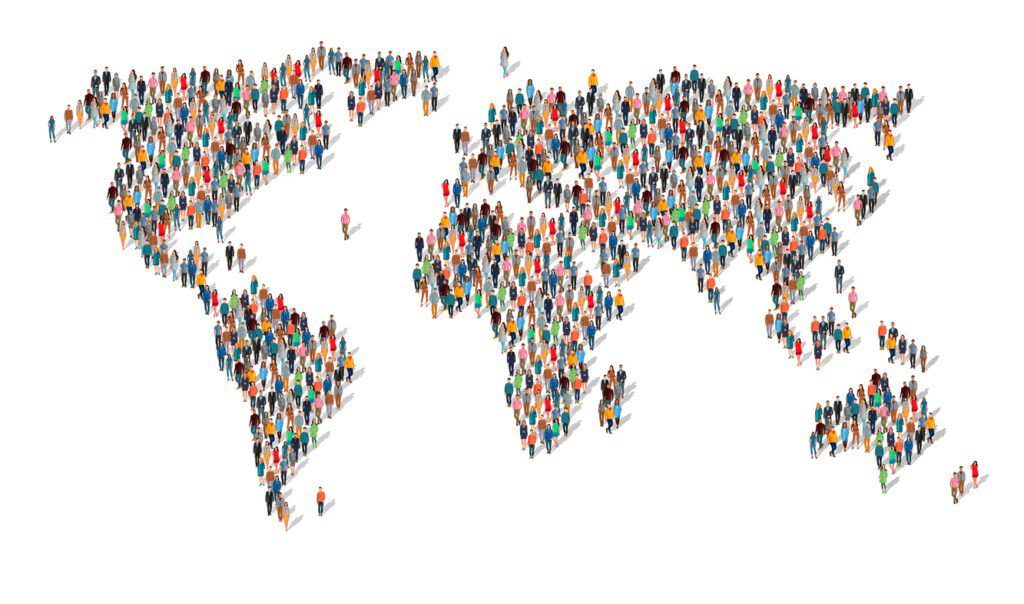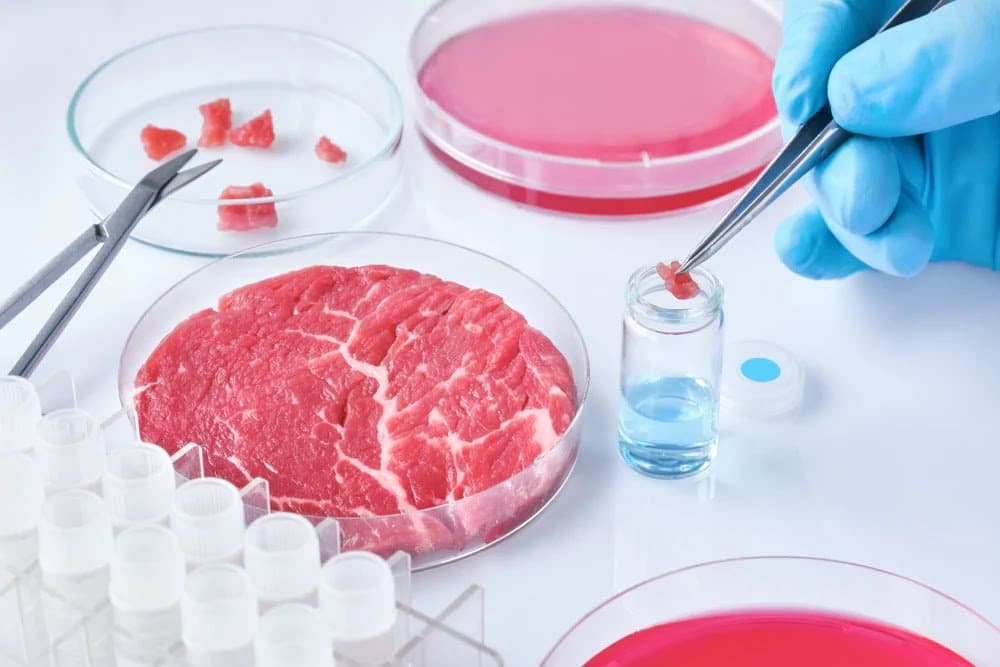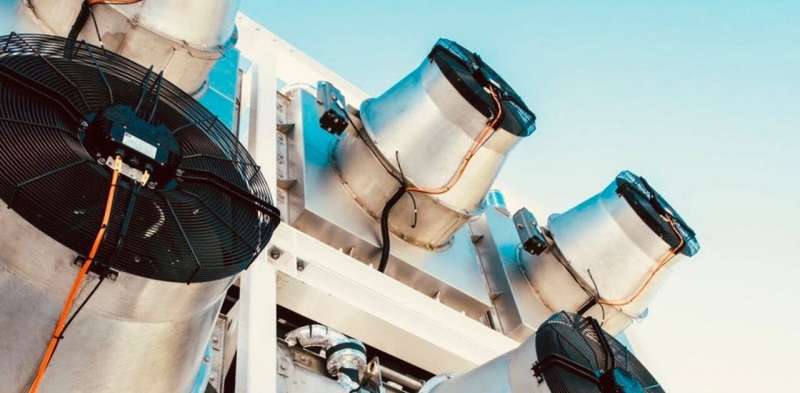In his new book “Climate – How to avoid a climate disaster“, Bill Gates lays out what it will really take to eliminate the greenhouse gas emissions that drive climate change.
The cofounder of Microsoft & a bunch of other things has a thesis: We'll need numerous energy breakthroughs, he says, to clean up the world. Most of the book examines these technologies necessary to avoid a disaster and reduce emissions in "difficult" sectors: above all steel, construction and agriculture.
Gates emphasizes that innovation will make it easier and cheaper for every nation to reduce or prevent emissions to avoid a disaster. The final chapters of the book (which is due out February 23, 2021) present a long list of ways nations could accelerate change. Standards for clean electricity, carbon tax, clean fuels, research and development funds. Many funds: for Gates, they must be increased fivefold.
Gates describes himself as an optimist, but I don't know whether to confirm this idea of himself. It constantly states that we can develop the necessary technology and avoid disaster, but there is no unshakeable confidence that we will make it.
Bill and the fate of the world

Gates invests personally or through Breakthrough Energy Ventures in many of the companies he mentions in the book. These include Beyond Meats, Pivot Bio, Carbon Engineering, Impossible Foods, Memphis Meats and more. Beyond interests, however, a convinced intention seems to emerge to find a link between innovation, a realm now largely private, and politics.
“If we can talk about innovation without involving me in political issues,” he says, “I always prefer it. It's more natural for me to support approaches. more scientific. But in this decade I recognize that to have the impact we want and avoid a disaster we will have to work very hard together with governments.”
My naïve view at the beginning was, “Hey, I'll just create a malaria vaccine and others will distribute it.” Clearly this wasn't a good idea. For many diseases, including diarrhea and pneumonia, there were already vaccines. The biggest challenge was political, not scientific: getting better prices, raising money, achieving the greatest coverage.
Bill Gates
The importance of politics

There is no doubt that politics has enormous importance. Let's take things like clean steel: it has no economic advantages. There is no market demand for clean steel. Even small carbon taxes are not enough to get clean steel. We need a mega carbon tax of around 250 euros per ton. With the funds raised, we then need to choose the right companies and support them so that they produce the transformation we need.
There will be more and more interaction between politics and innovation. There is no alternative, especially if it helps to avoid a disaster like the one caused by global warming. And it is on this that Gates shows laconic realism.
Keep global warming below the 2 ° C mark? It would practically be the best case. We should be very lucky, and it would take an incredible commitment from many, many countries. That it gets better than this is not realistic. And perhaps even a 2 ° C rise isn't realistic. To limit the damage requires an enormous effort and other energy paths beyond the one that leads to producing more and more batteries. For example, nuclear fission and fusion are needed to have reliable sources of electricity.
Bill Gates
The global challenge of food

Gates' book covers a wide range of hard-to-solve areas. The most difficult of all (did you expect it?) is the food. Gigantic difficulties, and we are only at the beginning. We must find systems that completely reduce emissions from agriculture and livestock. A huge thing.
Among the companies in the magnate's portfolio I mentioned one first, the Pivot Bio. Pivot Bio aims to significantly reduce the fertilizer needed in agriculture. Two paths, both ambitious: improving photosynthesis and improving the conversion of nitrogen in the soil.
The current situation? Many solutions aim to feed animals products that reduce their methane emissions to avoid climate disaster. But it's likely that they won't take us far, because the bacteria that produce methane are used by animals to digest, they can't be killed. For this reason it is probable that the only possibility for the more developed countries could be to focus on protein and synthetic alternatives.
La synthetic meat it is currently not very economical, and there is no guarantee that it will become so any time soon. Other plant-based approaches such as those of Impossible Foods and Beyond Meat are very competitive. Today "alternative" meat does not reach 1% of the total, but it is growing. Gates' wallet (Breakthrough Energy, the group of companies it supports) has 4 different investments in this branch.
I know, I'm unpopular, but I often say: we can't have more cows. I don't think the 80 poorest countries will eat synthetic meat, but I think that to avoid disaster all rich countries should switch to 100% synthetic beef. Motivation and laws can completely shift the demand for food.
Bill Gates
Clean the air to avoid disaster

In the book, Gates talks a lot about the importance of carbon removal technologies, such as direct air capture. Among other investments made, the Microsoft creator includes Climeworks, a Swiss company that removes carbon dioxide from the air and stores it permanently underground.
Gates does not believe in the "compensatory" approach of planting trees in place “I think it's wrong,” he says, “the idea that there are all these places with good soil and good water, and just accidentally, trees didn't grow there.” He argues, in other words, that many of these “compensatory” forests will not last for thousands of years, nor long enough to get things back on track.
In short (Italian only)
I omit other elements of the book so as not to pass from the general look to the spoiler. If you are interested in the worldview of this guy who is slowly "poking his nose" into all the things that could be part of our future, go ahead and read the rest for yourself.
What I can say to summarize Bill Gates' recipe against disaster is that according to him the future is not "compensatory". Or at least not just compensatory. Using all our resources of time and money just to plug a “hole” made by human activity over the last two centuries will not save us, he says. It is partly necessary to cure some undeniable wounds (above all, emissions and microplastics, an incredible plague). To a large extent, however, we need to direct all human activity towards totally new habits and behaviors.
Grow, like a sunflower, putting ourselves in the direction of the sun and nature. Building with clean steel, with clean concrete. Do not attack the planet with intensive farming, and do not upset the biology of animals to make them produce better, and more. Or to get better and more nutritious meat.
Science, although a rigorous discipline, has its mysterious ways. To say that he can or cannot do something is crazy: because in many cases he has done things that no one would have foreseen. Relying on her is a good choice, therefore. But it can only be done in two ways: by investing money and changing the policy in an environmental sense.


